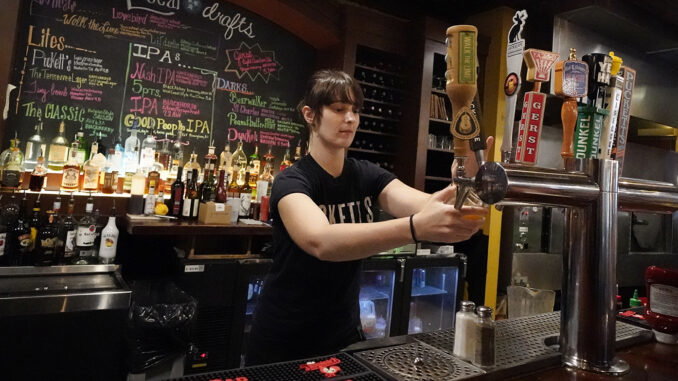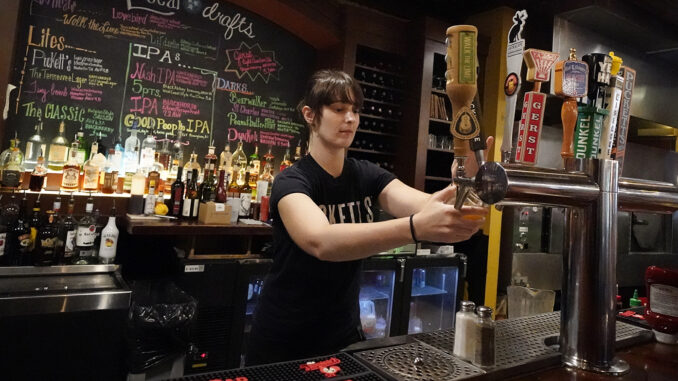

RALEIGH — On July 7, Gov. Roy Cooper signed House Bill 768, titled 2022 ABC Omnibus. A provision of the bill repeals the current definition of “private bar” and creates a new one in order to eliminate the membership requirement.
Section 6 of the new ABC Omnibus law eliminates existing membership requirements for private bars by defining such establishments as “an establishment that is primarily engaged in the business of selling alcoholic beverages and that does not serve prepared food.” Under the provision, a private bar would not include a “brewery, winery, or distillery.”
Back in June, House Bill 1108 was filed aimed at removing the membership requirement, how- ever, that bill stalled out in the Committee on Alcoholic Beverage Control after being referred there on May 31.
Meanwhile, on July 5, the Raleigh City Council voted unanimously to institute the city’s first social drinking district which will take effect Aug. 15 of this year. Much like Bourbon Street in New Orleans, a social drinking district is an area of the city where people can buy an alcoholic drink from a restaurant, bar or business and then carry it with them as they head to another establishment.
Cooper signed a bill in September 2021 permitting for social drinking districts with clearly set boundaries and containers with distinct to-go labeling. The social drinking districts were part of House Bill 890 as a means to increase patronage of local businesses continuing to have revenue issues due to pandemic shutdowns.
Following the bill becoming law, in addition to Raleigh, other towns and cities across the state such as Charlotte, Greensboro, Hickory, and Kannapolis began considering such measures.
Raleigh’s new social district will cover a large part of downtown, mainly along Fayetteville Street from the Capitol Building on the north, and between Moore and Nash squares to the east and west. The district runs south along Fayetteville Street to include Red Hat Amphitheater, the Raleigh Convention Center, and the Duke Energy Center for the Performing Arts.



